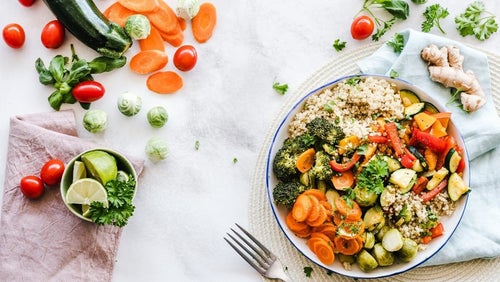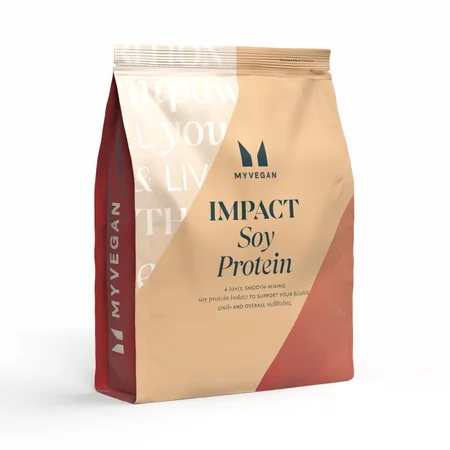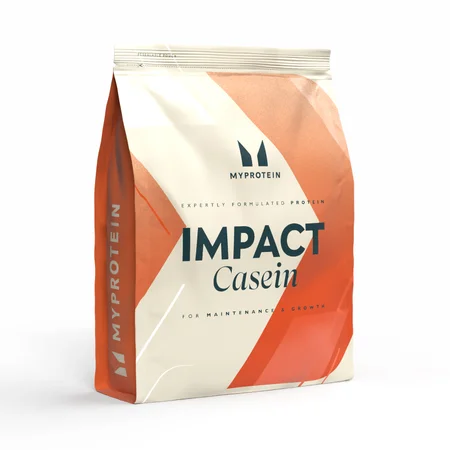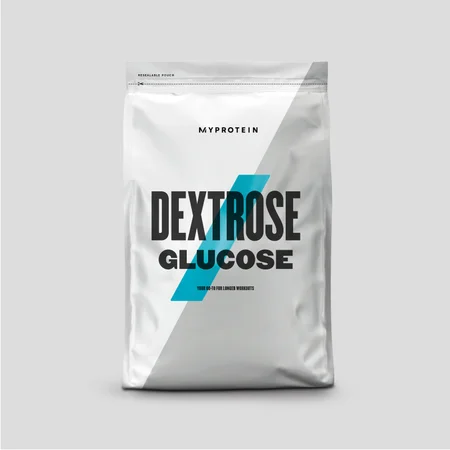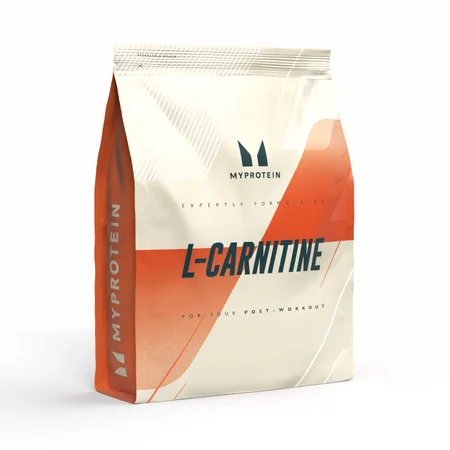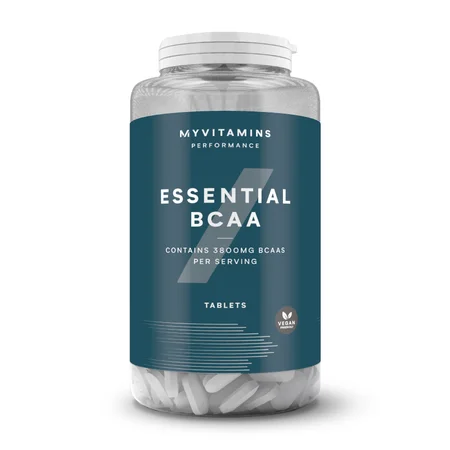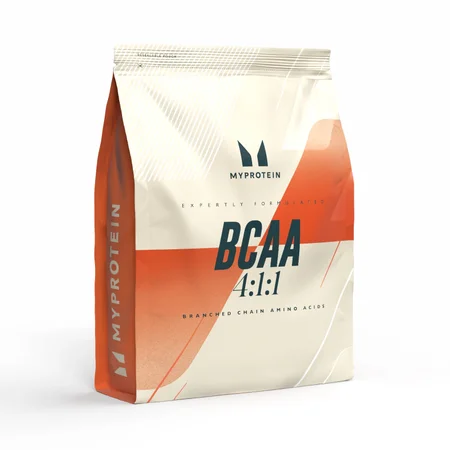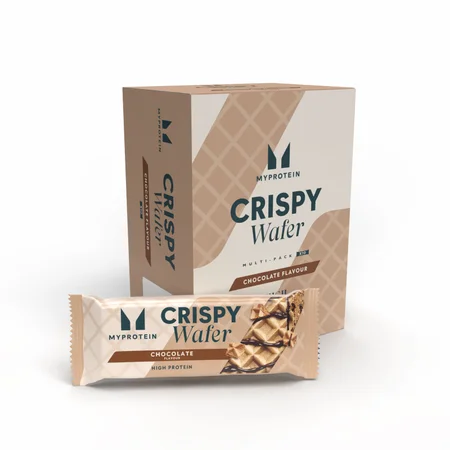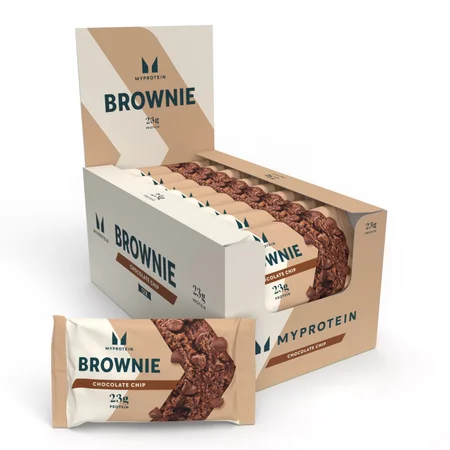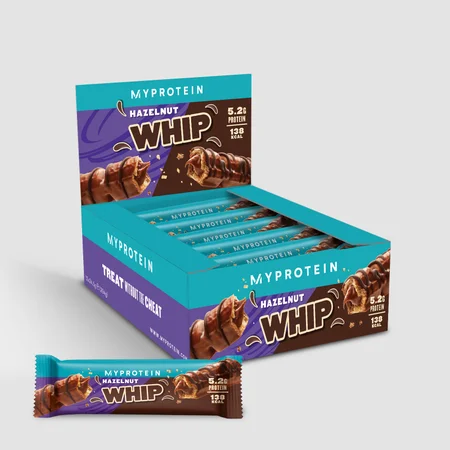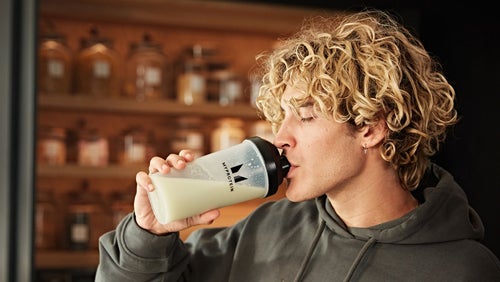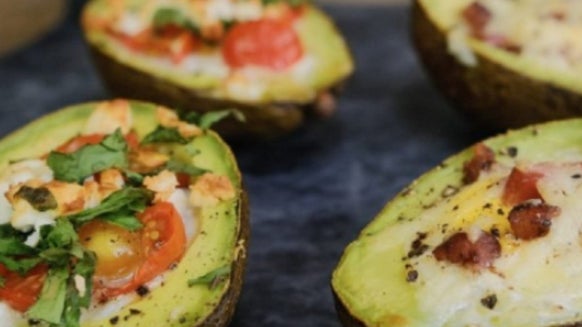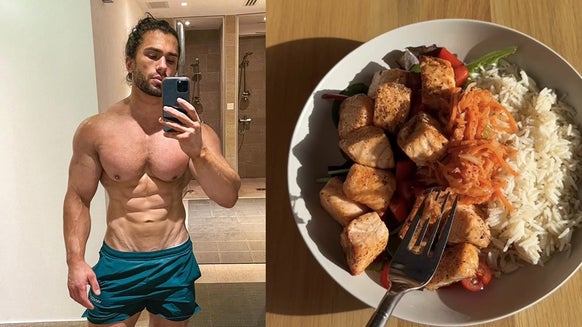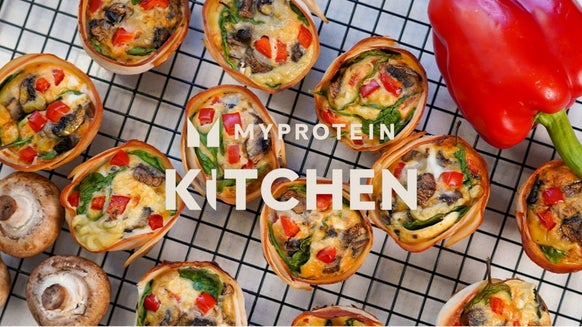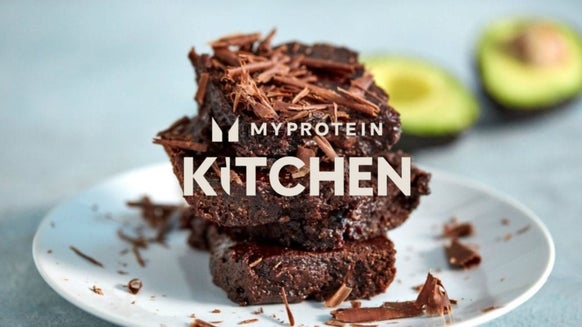How Much Protein To Build Muscle?


When it comes to building muscle, your gym routine is only part of the puzzle — your diet, particularly your protein intake, is the other key factor.
In general, you need between 1.2 – 2.2 grams of protein per kilogram of bodyweight daily to encourage muscle growth.1
While specific factors can play a role in where you fall on that range, supplying your muscles with quality protein from your diet is the key to promoting muscle growth. Read on to learn about how to make the most of your protein intake.
- What is protein?
- How much protein do you need on a normal diet?
- How does protein contribute to muscle growth?
- How much protein do you need to build muscle?
- How to calculate your protein requirements for muscle growth
- When should you eat protein to build muscle?
- High-protein foods to help you build muscle
- Supplements to build muscle
- Training to build muscle
- Common muscle-building mistakes
- FAQs
What is protein?
Protein is one of the three macronutrients along with fat and carbs. It provides 4 calories per gram and is made up of amino acids.
Protein comes from both animal and plant sources, like meat, eggs, dairy products, beans and peas. While it occurs naturally in many foods, there are also a wide variety of protein supplements on the market.
How much protein do you need on a normal diet?
If you’re not exercising excessively or trying to gain mass, 0.8-1.2g per kg of body weight is appropriate. Certain ages when we experience more growth (like adolescence) or as we age and start to lose muscle mass (55+), you may be on the higher end of the range.
How does protein contribute to muscle growth?
Much of our body is made up of protein, including muscle, bones, skin, and hair. Because its function is so widespread, there’s a constant turnover of proteins in our body — some being broken down (catabolism) and some being built up (anabolism).
The amount of protein we consume in our diets can influence whether we’re in a building or breaking down state.
Exercising causes stress on our muscles, making tiny tears or injuries in the muscle proteins that need to be repaired. Consuming more calories and protein in our diet than we’re breaking down provides the building blocks for our muscles to repair and gain mass over time.

How much protein do you need to build muscle?
Now that you know the general range of protein needed to build muscle, let’s dive deeper into the specifics, based on your sex and body type. These are estimates, and vary based on your age and level of activity.
| Underweight | Healthy weight | Overweight | Obese | |
| Male | 2.0g/ per kg bodyweight | 1.4 g/ per kg bodyweight | 1.2g/ per kg bodyweight | 1.2g/ per kg bodyweight |
| Female | 1.8g/ per kg bodyweight | 1.2g/ per kg bodyweight | 1g/ per kg bodyweight | 1g/ per kg bodyweight |
How to calculate your protein requirements for muscle mass
If you want to calculate how much protein you need to build muscle mass, there are a few approaches you can take.
The simplest approach is the grams per kilogram calculation using the table above. If you’re a female and currently at a healthy weight of 150 lbs, you need 1.2 g/kg protein to build mass.
You can also use a macro approach, like our simple macro calculator. It will give you recommendations for carbs and fat as well, based on your gender, age, weight, and goals. This does all the maths for you!
The third option is to calculate your protein intake as a certain percentage of your total calorie intake — between 10-30% is a reasonable range. If you want to gain mass, we’d recommend between 20-25% of your calories coming from protein. For example, if you follow a 2000 calorie diet:
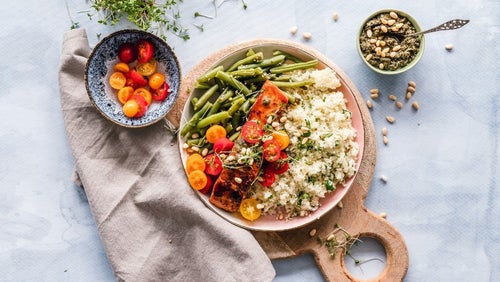
Macro Calculator | How To Calculate Your Macros For Flexible Dieting & IIFYM
Use our calculator to work out your macros.
Which factors could affect your calculations?
You might have higher or lower protein needs for different reasons. Women typically have less lean mass than men and require less protein in general.
Women who are pregnant or breastfeeding have higher protein needs. Also, if you’re recovering from any kind of injury, your needs may be higher as your body is in a state of repair.
If you’re trying to lose weight and are currently consuming too many calories, you might have to cut back on protein intake as part of an overall lower-calorie diet.
However, keeping your percentage of calories from protein the same will help preserve your lean muscle mass and potentially promote muscle growth based on exercise.
When should you eat protein to build muscle?
If your goal is to build muscle, you need both an excess of calories for the day and adequate protein to rebuild any microtears you create during your workouts. While it was thought that you needed to consume protein within two hours of your workout, now we know that your protein intake for up to 24 hours after you hit the gym supports your muscle building.
Once you know your total needs for the day, it’s best to break up your protein intake into 3 or 4 meals or snacks each day.
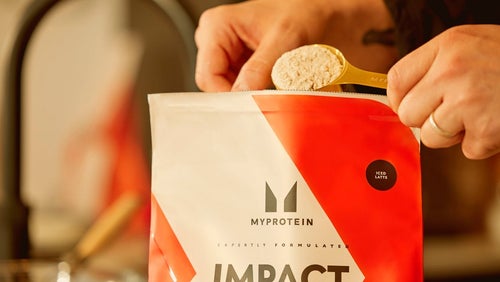
Whey Protein Timing | The Best Time To Take Protein Shakes
We reckon any time is a good time, but here's what the experts say.
High-protein foods to help you build muscle
Make sure you’re getting enough high-quality protein at regular intervals
Protein is essential for building muscle. Choose protein sources high in essential amino acids such as meat fish and dairy. Aim for a daily intake of 1.6g/kg with doses every 3-4 hours.
For all the veggie muscle builders, chickpeas and lentils are brilliant meat-free alternatives for a protein hit at lunch and dinner.
Carbohydrates are important as a fuel source, for recovery and for calories
Carbohydrates are a key fuel source during high intensity and will help you recover from a demanding training session.
Carbs do not have the same impact on satiety as protein so including carbs in your diet will make it easier to hit the calories needed.
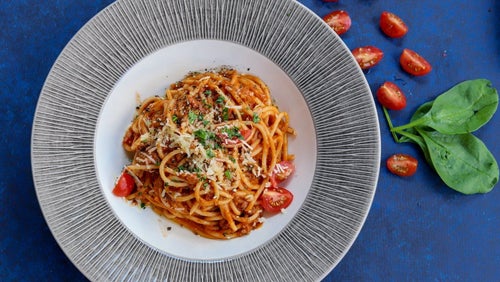
Why Carbs Aren't The Enemy | Different Types of Carbohydrates & Benefits
It's time to make friends with carbs...
Fats are important for hormone production and will add calories to your diet
Eating a low-fat diet has been shown to reduce testosterone levels which may affect your capacity to build muscle. Of each of the three macronutrients, fat has the highest number of calories per gram with 9kcals compared to 4kcals in both carbs and protein.
Healthy sources include avocados, oily fish and coconut oil.
The table below lists some high–protein foods and compares the amount of protein in each food based on a 100g serving.2 However, remember 100g is not necessarily the serving size of each of these foods.
While chia seeds are high per 100g, you would likely not consume more than 10g at a time — you might consume more than 100g of milk at once.
| Classification | Food | Grams protein per 100g food |
| Meat | Chicken breast | 31g |
| Turkey breast | 30g | |
| Pork chops | 30g | |
| Lamb chops | 26g | |
| Ground beef | 26g | |
| Fish | Salmon | 22g |
| Sardines | 25g | |
| Tuna | 24g | |
| Mackerel | 26g | |
| Nutes & seeds | Chia seeds | 16g |
| Peanuts | 24g | |
| Almonds | 21g | |
| Eggs | Whole eggs | 12g |
| Egg whites | 11g | |
| Dairy products | Skimmed milk | 3.5g |
| Greek yogurt | 6g | |
| Cheddar cheese | 25g | |
| Soy products | Soy beans | 11g |
| Soy milk | 4g | |
| Tofu | 16g |
Supplements for muscle-building
Whey Protein
Whey protein is a high-quality source of protein with a high amount of essential amino acids and a fast digestion rate. Supplementing whey protein is a convenient way to increase your daily protein intake.
Our Whey Isolate is the perfect all-round protein, and if you're veggie, our Soy Isolate is a great alternative.
Casein Protein
Casein protein has a slower digestion rate then whey protein and it helps reduce muscle protein breakdown. This makes casein a great supplement to include before bed when periods of protein breakdown are increased.
Creatine
Supplementing creatine will increase your creatine phosphate stores which act as a fuel source during weight lifting. Training with fully saturated creatine stores will mean you can all the sets and reps required to make long term muscle gains.
Dextrose
If you struggle to eat enough food, adding some high GI carbohydrates to your post workout shake is an easy way to boost your daily calories. It will also help to increase your glycogen storage and will enable you to train just as hard in your next session.
Amino acids
Not all protein sources are equal. Some contain more essential amino acids than others. This will have an effect on the impact that a specific protein source will have on your body’s muscle protein synthesis rates.
In order to maximize rates of MPS, your body needs to ingest enough leucine, a branched-chain amino acid, which acts a signal for your body to start building muscle.
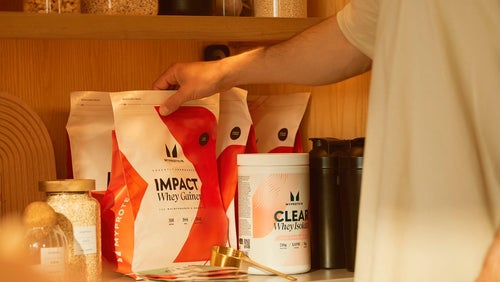
The 8 Best Supplements For Muscle Gain
Is growing muscle on your agenda? Then you've probably considered supplements – read this first.
Training for muscle-building
Exercise selection
Including both multi-joint and single joint exercises is best for building muscle. Multi-joint exercises such as squats and bench press will boost the hormone response to training (testosterone and growth hormone) and single joint exercises will allow you to focus on key individual muscles.
Get your rep ranges right
Intensity or training load is one of the most important factors when it comes to building muscle, and choosing the right amount of weight to lift during an exercise is key.
Selecting a weight that you can lift for 6-12 reps is best for building muscle.

Train with enough volume
Training volume is defined as the total amount of sets, reps and load performed during a training session. Evidence shows that higher volume is better for building muscle.
Progression
To maximise muscle building it is important to steadily progress the amount of volume used in a session (total sets, reps and load). It is important to do this gradually as increasing too much too soon may result in over training. So don’t go too heavy, too soon.
Common muscle building mistakes
If you’re putting in plenty of effort, regularly showing up to the gym and you’re still not building muscle, it’s possible you are making some common mistakes.
1. You’re not eating enough
Building muscle requires energy. If you are not eating enough, you are not providing the body with the energy it needs. While it may be possible to gain a small amount of muscle in a calorie deficit, the textbook guidelines recommend a daily calorie surplus between 250-450kcals.

2. You’re not getting the amount of protein you need
Protein and amino acids are the building blocks of muscle and it's essential you get your protein intake right when looking to add muscle. If you are not in a calorie deficit, the optimal protein intake for muscle gain is 1.6g/kg/d. Eating below this may not provide enough to build new muscle.
Similarly, eating above this has been shown to have no additional benefit when it comes to muscle gain and the calories may be better used in the form of carbohydrates.
Protein also has the highest satiety response (feeling of fullness) of each of the three macronutrients so if you struggle to eat enough food to build muscle, eating too much protein may make it harder for you to get the calories in.
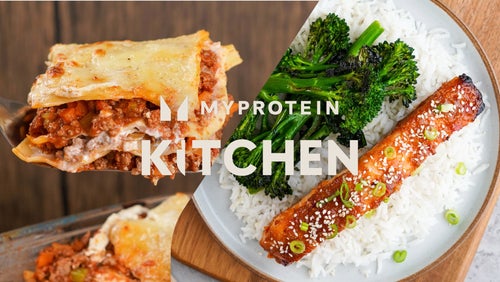
57 Meal Prep Recipes For Muscle Building & Fat Loss
Your next favourite prep is in here...
3. You are not eating protein regularly enough
Your body goes through a continuous period of muscle protein turnover with periods of muscle protein breakdown and muscle protein synthesis. When protein synthesis exceeds protein breakdown you will build muscle.
If you are not eating protein regularly throughout the day, or miss important meals such as breakfast, your period of muscle protein breakdown will be extended. This will make it harder to build muscle.
It’s recommended you consume protein at regular intervals with every 3-4 hours being best, so it's important to have some quick protein snacks on hand.
4. You’re not eating enough carbs
Carbohydrates are a critical fuel source for high intensity exercise such as resistance training. They will help you get the most out of each training session and allow you to get those all-important sets and reps out which may make all the difference to your long-term progress.
Additionally, carbs post workout will help you recover. Opt for high GI carbs post workout as they will replenish your glycogen stores faster.
5. You’re not giving it enough time
Building muscle takes time and setting realistic expectations will stop you from getting disheartened and unmotivated. Due to genetics, some people just build muscle quicker than others.
Typically, the maximum amount of muscle gain, without fat mass, is approximately 0.5-1kg a month. Whilst it might be frustrating that you’re not gaining mass as quickly as others, staying patient and sticking to the fundamentals of good quality resistance training alongside the right nutrition plan will give you everything you need.
6. You’re not sticking to a plan
As it takes time to build muscle, consistency is vitally important. Alongside this, so is progressive overload. Sticking to a well-designed resistance training program, with a nutrition plan devised to support it, will allow you to maintain consistency and continually progress.
Protein for muscle growth — FAQs
Do males need more protein than females?
Males generally have a higher proportion of muscle than females, which would require higher levels of protein for muscle growth or maintenance. However, based on the height, weight, and muscle mass, a female could require more than a male with less muscle mass.

Protein Intake for Women | How Much Should You be Getting per Day?
And which protein sources are best?
Will protein make me gain weight?
Too many calories from any source can make you gain weight. If you want to gain muscle, you will likely see the number on the scale increase.
Muscle tissue holds water while fat does not; this is why you might see changes in your body composition but not see weight loss. Too much protein — more than your body needs — can be stored as fat for later usage and also lead to weight gain.
What is the best protein to build muscle?
The best proteins to build muscle are those that contain all of the essential amino acids — the building blocks for protein that the body can’t make on its own — which are called “complete” proteins.
Varying your protein sources in your diet can help assure you get a wide range of amino acids. Research shows that protein sources high in the amino acid leucine can increase muscle growth.3 Dairy foods, like whey protein, are high in leucine.

What is the best vegan protein for muscle growth?
There are many high protein vegan supplements on the market — soy, rice, pea, etc. A blend can be a good option to make sure you are obtaining all the amino acids. Look for one with higher levels of leucine and compare labels to find the one with the most protein per 100g.
Is it possible to consume too much protein?
It’s possible to consume too much of any nutrient — and what our body doesn’t need to burn for energy, it will store.
Our kidneys are involved in the processing of the protein in our diet, and extremely high levels of protein can be harmful over time. However, studies show that up to 3.5g/kg bodyweight per day does not cause negative side effects.4

Take home message
Protein is a key nutrient found in many of our foods, and available in many supplement forms.
As the key muscle builder, protein in our diet, along with exercise that challenges our muscles, causes them to repair and grow.
Following an eating pattern that includes high quality protein is an important part of building muscle and meeting your strength goals.
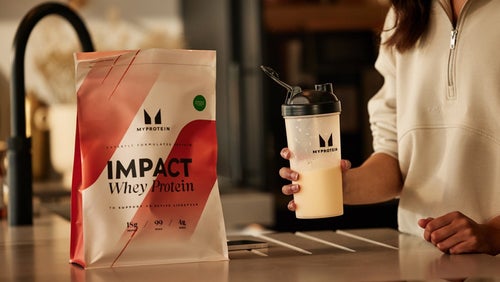
The Complete Guide To Protein Powders For Beginners
Match your protein to your training.

How To Build Muscle | 9 Top Supplements For Bulking
Need a helping hand to make those extra gains?

Claire is a Registered Dietitian through the Academy of Nutrition and Dietetics and a board-certified Health and Wellness Coach through the International Consortium for Health and Wellness Coaching. She has a Bachelor of Science in Biology and a Master’s degree in Clinical Dietetics and Nutrition from the University of Pittsburgh.
Talking and writing about food and fitness is at the heart of Claire’s ethos as she loves to use her experience to help others meet their health and wellness goals.
Claire is also a certified indoor cycling instructor and loves the mental and physical boost she gets from regular runs and yoga classes. When she’s not keeping fit herself, she’s cheering on her hometown’s sports teams in Pittsburgh, or cooking for her family in the kitchen.
Find out more about Claire’s experience here.
- Table, M. (2005). Dietary reference intakes for energy, carbohydrate, fiber, fat, fatty acids, cholesterol, protein, and amino acids (Vol. 5, pp. 589-768). National Academy Press: Washington, DC, USA.
- Nutritiondata.self.com. 2020.SELF Nutrition Data | Food Facts, Information & Calorie Calculator. [online] Available at: <https://nutritiondata.self.com/> [Accessed 19 August 2020].
- Rieu, I.,Balage, M.,Sornet, C., Giraudet, C., Pujos, E., Grizard, J., … & Dardevet, D. (2006). Leucine supplementation improves muscle protein synthesis in elderly men independently of hyperaminoacidaemia. The Journal of physiology, 575(1), 305-315.
- Astrup, A. (2005). The satiating power of protein—a key to obesity prevention?
